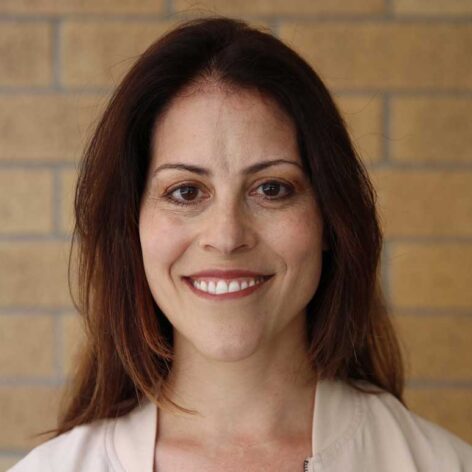
We provide comprehensive psychiatric care for children and adults. We combine evidence-based psychopharmacology with innovative modalities like HRV (Heart Rate Variability) and neurofeedback* brain training to address a wide spectrum of mental health challenges, including ADHD, depression, anxiety and PTSD. This integrated approach allows us to deliver tailored interventions that promote symptom reduction and build resilience, guiding individuals toward improved mental wellness and empowering them to thrive in all aspects of life.
Our Three Core Components
Integrative Treatment
We provide a wide range of healing modalities, including mindfulness, neurofeedback, Internal Family Systems (IFS) informed facilitation, group support, and cultural ceremonies. Through partnerships with leading research institutions, we hope to offer novel treatment with MDMA and psilocybin in the future.
Medication Management
A comprehensive approach to mental health care, focusing on the safe and effective use of psychiatric medications. This process includes thorough assessments, precise prescribing, continuous monitoring, and necessary adjustments to ensure optimal therapeutic outcomes.
Brain Training
Brain training is a non-invasive brain-training technique that helps individuals improve self-regulation and enhance focus. By providing real-time feedback on brainwave activity, our neurofeedback sessions empower clients to develop healthier patterns, supporting long-term emotional and cognitive well-being.
NovelPath Services
We offer innovative treatments that combine the latest advancements in medicine, neuroscience, and integrative therapies to provide comprehensive behavioral health
Ketamine, available only by prescription, has been proven to improve a variety of mental health concerns, including depression, anxiety, and PTSD. When used in a safe "set and setting," ketamine can contribute to profound psychological and spiritual insights. It is most effective when combined with other holistic therapies and lifestyle changes.
Utilizing Quantitative Electroencephalogram (QEEG) technology, neurofeedback is an advanced therapy that provides real-time brain activity displays for self-regulation training. By measuring scalp electrical patterns, it offers immediate feedback on brainwave states, enabling users to make adjustments for enhanced cognitive, emotional, and physical well-being. Learn more in this video.
Photobiomodulation (PBM) Therapy is a non-invasive treatment for depression, anxiety, and other mental illnesses. By delivering specific light wavelengths directly to the brain, PBM stimulates cellular repair and boosts energy production, promoting mental health and cognitive function. It offers a promising alternative to traditional treatments by reducing inflammation and encouraging neuroplasticity, thereby enhancing brain health. Learn more in this video.
Transcranial Magnetic Stimulation (TMS) is a non-invasive treatment used for patients with treatment-resistant depression, particularly those who haven't responded to traditional treatments like medication and psychotherapy. TMS involves using magnetic fields to stimulate nerve cells in the brain, specifically targeting the prefrontal cortex, which is associated with mood regulation.
We provide psychedelic peer support services, offering a valuable space for individuals to explore their consciousness and navigate transformative experiences facilitated by psychedelics. Our compassionate and knowledgeable peers, well-versed in the complexities of psychedelic states, guide individuals in a non-judgmental environment that fosters understanding.
We provide a detailed assessment by a licensed mental health professional to understand your unique needs. This personalized approach identifies issues like anxiety or depression and crafts a tailored treatment plan just for you. Your plan may include individual or group therapy and ongoing medication management.
We offer culturally relevant evidence-based treatment integrating indigenous knowledge with modern medicine to heal from historic and systemic trauma-induced conditions, including depression, anxiety, PTSD and addiction. We provide this treatment through somatic storying that develops a culture of dignity, compassion, harmony and generational expansion, cultivating a clear understanding of self to recover from negative impacts of past generations, find the wellness potential in the present, and shape a regenerative future for one’s self and their community.
Our Schedule
First appointments available starting January 8, 2025
Meet our Experienced Team
Experienced doctors and scientists form our medical staff

Dr. Darron Smith
Dr. Smith Ph.D, PA-C, DFAAPA is the Founder and Clinical Director of NovelPath. As a physician assistant and sociologist, Dr. Smith oversees clinical services and programs. His area of research and teaching centers around inequalities in the health care delivery system. Social factors like race and class-based discrimination often give rise to the formation of disease. Stress is the main culprit. More specifically, his research examines systemic domination of one group over the another and the consequences for well-being. In addition, he has taught sociology courses on race, ethnicity and gender in US society at three different universities. He has also taught in PA education and chaired the development of a new program. In addition, he's published in the fields of health services research, sports & race, black masculinity & health, religious studies.

Tasha Sabino
...asha Sabino is a clinically practicing physician assistant with experience in urgent care, family medicine, and pediatric orthopedics. She is a physician assistant educator where she teaches as at the University of Washington in the MEDEX program for physician assistants. Ms. Sabino, likewise, is a researcher in whose focus is on the social determinants of health and health inequities as they impact vulnerable populations in the US. She received her Master’s degree in Physician Assistant Studies from the University of Utah. Prior to a career as a PA, Ms. Sabino taught high school science, health and sports medicine and practiced as an athletic trainer. He undergraduate degree is in Exercise and Sports Science with a specialization in Athletic Training from the University of North Carolina at Chapel Hill.
Coming Soon:
Ketamine-Assisted Therapy
Ketamine-assisted therapy is considered to be effective for several reasons:
- Rapid onset of action: Ketamine is known for its rapid antidepressant effects, with some patients reporting improvement in symptoms within hours to days of treatment. This quick onset of action can be particularly beneficial for individuals experiencing severe depression or suicidal ideation.
- Neuroplasticity: Ketamine has been shown to promote neuroplasticity, or the brain's ability to adapt and reorganize itself in response to experience. This can help individuals break out of negative thought patterns and rewire their brain towards more positive and adaptive behaviors.
- Reduced rumination: Ketamine has been found to reduce rumination, or repetitive negative thinking, which is a common symptom of depression and other mental health disorders. By quieting the overactive default mode network in the brain, ketamine can help individuals break free from self-critical thoughts and focus on the present moment.
- Enhanced therapy experience: Ketamine-assisted therapy combines the insights and emotional processing of traditional therapy with the neurochemical effects of ketamine. This can help individuals access and process difficult emotions, memories, and experiences more effectively, leading to deeper healing and transformation.
- Longer-lasting effects: While ketamine's effects are relatively short-lived compared to traditional antidepressants, some studies have found that the benefits of ketamine-assisted therapy can persist for weeks to months after treatment. This prolonged relief can give individuals the support they need to make lasting changes in their mental health and well-being.
*The American Academy of Pediatrics (AAP) recognizes neurofeedback, also known as EEG biofeedback, as a Level 1 or "Best Support" intervention for children with ADHD. Research demonstrates that neurofeedback can lead to sustained improvements in attention and executive functioning in children with ADHD. By combining traditional psychiatric treatments with neurofeedback, we aim to enhance therapeutic outcomes, offering personalized care that addresses the complexities of both the mind and the brain.
